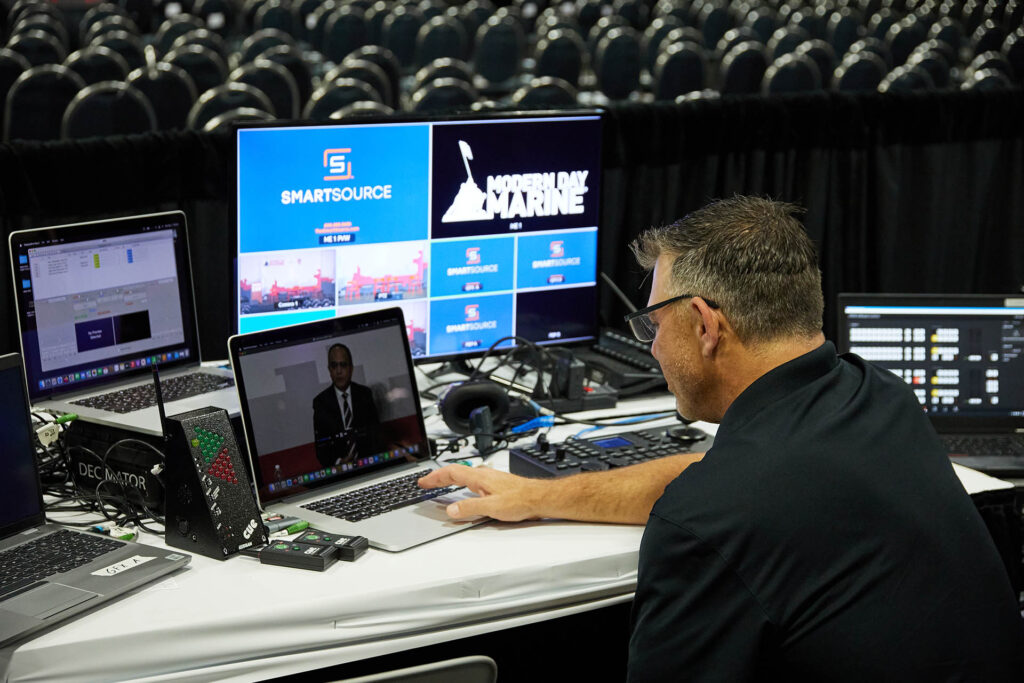Table of Contents
- COMPONENTS OF AN RFP
- EVENT HISTORY
- SCOPE OF WORK FOR THE PROPOSAL
- PROPOSAL REQUIREMENTS
- VENUE-SPECIFIC CONSIDERATIONS
- SELECTION CRITERIA
- AVAILABILITY FOR DISCOVERY CALLS
- SUBMISSION GUIDELINES
- DECISION DATE
One of the most important skills for an event organizer to master is writing a solid, detailed Request for Proposal (RFP). RFPs are a request for a supplier company to provide services, personnel, and/or equipment, or a combination of the three, and a well-crafted RFP can set an event up for success. An audio visual RFP should include the history of your event, meeting, or exhibition, a timeline of the upcoming event, detailed requirements laid out in an organized fashion, and request the costs for equipment, labor, and other expenses.
Ideally, an RFP should go out at least a year in advance. If it is distributed closer to your event, make your deadline reasonable, keeping in mind that everyone has business and personal obligations (think at least a month for a reply).
If creating a cohesive RFP sounds complicated, this blog should help you create an RFP that makes your audio visual selection process easier.
COMPONENTS OF AN RFP

Include the event name, dates of event, start and end times, dates of move in and move out, location including the venue and rooms/halls contracted, city, state, country (if applicable), sponsoring organization’s name, and any other key decision-making partners.
EVENT HISTORY
Give a history of the event. This should include your industry/sector, where the event was held previously (unless it’s brand new), number of past visitors, exhibitors, sponsors, and the types of sub-events. These include, but are not limited to, general sessions/keynotes, breakout rooms, exhibit floor activities, outside areas, and other venues used besides headquarters, etc.
SCOPE OF WORK FOR THE PROPOSAL
- General Session (Keynote) Requirements
- Stage design, projection, LED walls
- Audio system (microphones, speakers, mixing console)
- Lighting setup
- Live streaming/recording
- Teleprompters, confidence monitors, and cueing systems
- Technical labor (setup, operation, teardown)
- Any special features
- Breakout Room Requirements
- Number of rooms, room set (i.e. classroom or theater) and capacity of each
- Standard AV setup (projectors, screens, microphones, sound system)
- Hybrid/virtual components (if applicable)
- Labor support – do you need one roaming tech for every 3 rooms or one per breakout?
- Additional AV Needs
- Speaker-ready room setup
- On-site technical support throughout the event
- Wi-Fi/bandwidth needs for presentations
- Branding and content management on digital screens
- Other tech needs
PROPOSAL REQUIREMENTS
This is where you ask questions to vet the company’s qualifications.
- Company background and relevant experience with events such as yours
- Proposed equipment list with specifications
- Labor plan (crew roles, number of technicians)
- Sample project timeline (installation, testing, rehearsals, breakdown)
- Cost breakdown (equipment rental, labor, setup/teardown, contingency fees)
- References from similar events
- Any value-added services or creative solutions
VENUE-SPECIFIC CONSIDERATIONS
- Understanding of the venue’s in-house AV policies – are there exclusives?
- Power and rigging needs
- Load-in/load-out logistics
- Union labor requirements (if applicable)
Be sure to ask for any suggestions the provider may have to improve your event.
SELECTION CRITERIA
What is your selection process? Be specific on the criteria. This should include:
- References: How many? From what type of clients?
- Supplier’s experience with similar-scale events
- Pricing and value for services offered
- Client references and case studies
AVAILABILITY FOR DISCOVERY CALLS
This is the question-and-answer period, where suppliers can ask for clarification regarding your event and RFP. Don’t be surprised if the supplier has several people on the call. This is a great time to revise your RFP based on the questions asked. You may need to clarify certain descriptions or add more information for the future. You’ll need to notify all who are providing bids of changes.
SUBMISSION GUIDELINES
What type of format? PDF, Word?
Do you want mockups of the general session/keynote stage and special events areas?
Deadline for submissions: Be kind. Thursdays or Fridays are best. (Please Do NOT make this a Monday…)
DECISION DATE
Many organizers make the mistake of notifying only the winners. Be mindful and notify all suppliers who submitted proposals on the same date. If for any reason the decision date changes, inform the suppliers who have been invited to submit proposals.
Make time to speak with the suppliers who were not selected, should they reach out. They worked hard on your proposal, so give them the courtesy of letting them know how your decision was made and what they might be able do differently in the future for a better outcome.
Innovation, Insights, and Industry Trends
View AllUnlock Exclusive Insights and Resources
Stay ahead with our latest in-depth articles, case studies, webinars and valuable resources, all delivered straight to your inbox.
Newsletter
"*" indicates required fields









